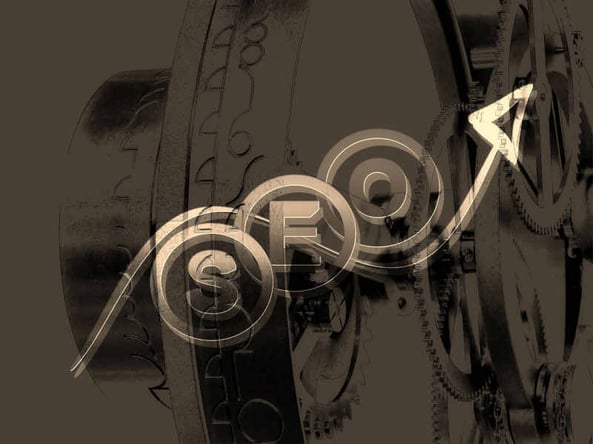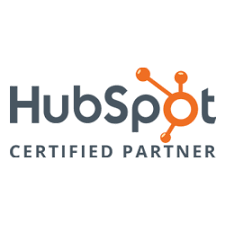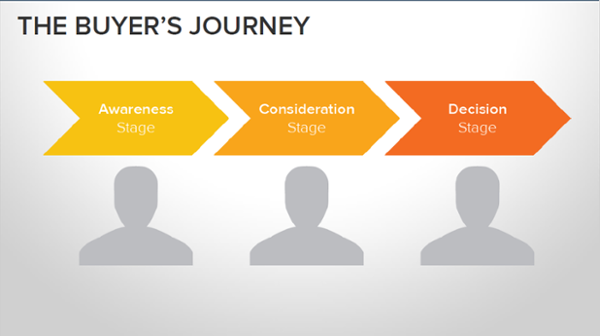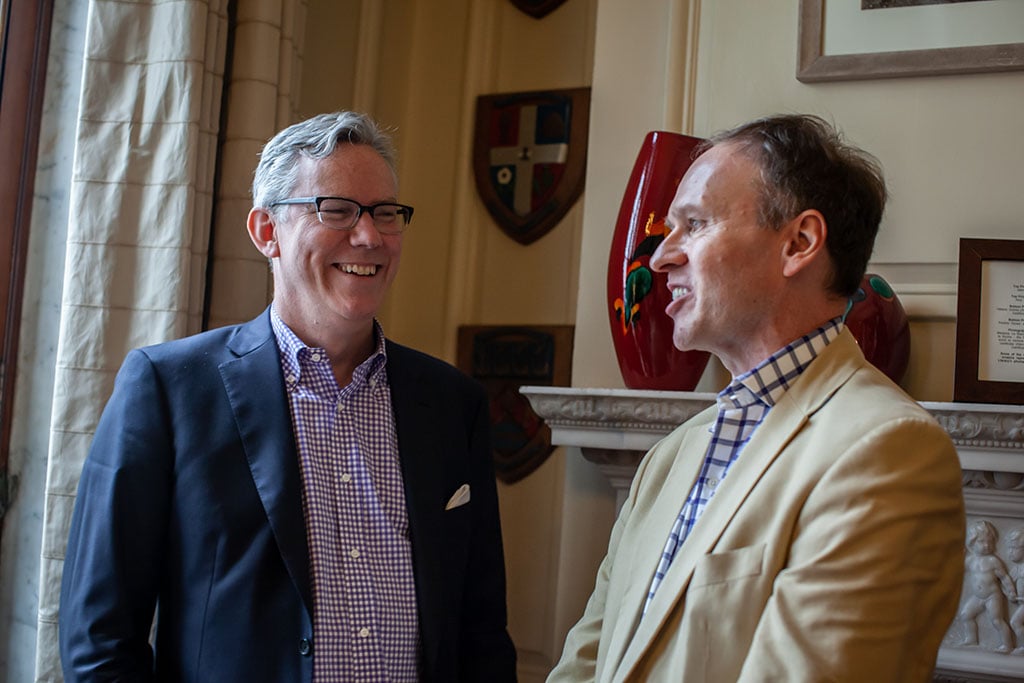UGLI Webinar Series: Whitehat SEO CEO Interview
- Home
- UGLI Webinar Series: Whitehat SEO CEO Interview
Hello and welcome back for some bold and honest conversations about what it's really like to run an SME against London's vibrant yet challenging economic and political background. This is the Ugli webinar series. I'm JP Founder and Director of the Ugli campus and today I'll be chatting with Clwyd Probert of Whitehat.
Welcome Clwyd.
Hey JP.
Now Clwyd you're normally on this side of the microphone with me interviewing some of the many Ugli members. A bit scary? It's your turn. So, it's really exciting for me to get an opportunity to hear more about Whitehat and what they do. So let's get started. What's Whitehat's reason for being and what brings you to White City and the Ugli campus?
“I'm really and kind of one of these geeks who are not really comfortable in front of a camera or a microphone.”
Wow. Those are really big questions and they're questions that have morphed and changed. The reason for the existence of the company and the business and everything else changes as you go forward, your perspective changes and the things that you do change. We came out of my background in Investment Banking Technology of all of all places so there's a bit of a history behind that.
I'm kind of one of those geeks who are not comfortable in front of a camera or a microphone. I'm much more at home, sitting in front of a computer and not talking to anybody. So that's completely out of my comfort zone. I am out of my comfort zone, running a business I suppose as well. That was never the plan.

I was a programmer. I came out of UCL and I ended up working in the City and ended up strangely enough as an Ops Director for a software house, selling CRM systems for Investment Banks. That was kind of cool but as a techy, you ended up being dragged around the City and if you imagine and remember what the City was like in the late eighties and early nineties, it was kind of fun and fascinating from a technical perspective because I was thrown in front of some very senior bankers.
Whereas the sales guy sitting next to me was selling them stuff and the senior banker at the other side of the desk was being sold to. He would have a pet technologist sitting next to him and they would, the sales guy and the guy being sold to, would talk.
Now and again, they would turn to us and say, well, is this making sense? Selling me some rubbish we would then have a deep technical conversation and the nods would be made and we would go forward.
I learned the sales process just by sitting in and following people around the City, which was fun. Then the scary thing that happened was that we were sold. We went from seven people when I joined to 70 people when I was Ops Director. We were sold to an American firm that had just IPO on the NASDAQ and I was sold as part of that deal, which was also kind of fun. Strangely enough, they made me VP of Marketing and they needed somebody to essentially pull the two different product sets of these companies together and introduce our free CRM systems to the American sales force in the American market.

So they said, Clwyd, you're going to have to go into marketing and we're going to send you to New York and you're going to work on Wall Street. So I said, okay because I just tend to. I tend to say yes first and then think about the consequences later and end up in New York.
I took my family over there, had a blast for about three years and made a lot of friends. Learned marketing on the fly because although they were Americans, they didn't know very much about it either and so we kind of figured it all out and then I came back here at the end of that. I was on a three-year vesting, so I had to stay for three years and sort of golden handcuffs if you like, then came back over here, and raised a lot of venture capital money to do it all over again.
What did I do next?
That second business didn't work. Not because it wasn't a good idea. I think it was an excellent idea, but it was all tied around the 911 attacks. When we needed our second round of funding, it wasn't there and it wasn't the right time so we ended up shutting that business down and like anything, when you go through a sort of traumatic change like that, you don't know quite what to do. I became a photographer. I was always a passionate amateur. I thought it was quite good at it and I bumped into somebody who was just starting up a business, we got into talking and I convinced them that I could potentially build a big business out of it and that's what we did. We started a photography business and that's how I got into digital marketing.

Digital marketing. I taught myself the early rules if you like, of Search Engine Optimisation to promote that business and it took me a couple of years, but at the end of that time, we were dominant online. We were number one for loads of different terms relating to Wedding photography, Event photography, and Corporate photography. I have teams of photographers all over the country working for me and we built up an online business, which was kind of fun. I'm coming to your question.
I'm loving the journey.
So, what happened then is and you probably see that our journey and our life are driven by geopolitics, right? So if the 911 attacks, the next sort of big event I suppose was the recession of 2008, about that sort of time. That had a negative and a positive effect on us.
The negative one was that it really hit the high-end photography business and I could just see it coming that that business was going to be hard to continue to grow. Also, loads of people became unemployed and as far as I could figure out as soon as they lost their jobs, they picked up cameras and became photographers. So I could see a lot of competition coming into the market. So, there was no future really in growing that but the upside was that all the business people I knew had seen what I'd done online. I started getting calls from people saying, Clwyd,
- How did you do that? that Google thing,
- How did you do what you did?
Well, I told them and I said, you do this and you do that and they said, well I'm not interested in being told, I need somebody to do it for me.
I got some consultancy and eventually, the light bulb went off over my head and said actually, this business is bigger than that business. I shut down the photography business, which was called Pixcellence and we started up Whitehat, which is the inbound agency that we've got now. There's been pivots and there's been changes and there's been a lot of transition and growth and we've changed as an agency and have started working with SMEs and we found Ugli quite early on in that process. I started the business with no external funding with no backing, literally starting working from a home office and you can do that for a while and then you hit barriers and generally, they involve interruptions to the day and we've got cats and young children and all this kind of stuff and it's very difficult to have a good life, work balance and grow a business like that.
I needed some separation and I started looking around. We were members of a business networking group at the time and we were talking to somebody, I can't even remember who it was a small architect firm and they said, oh well, we're in this building called Ugli and I said, what on earth is that? They said, well, you know it's in White City. I said, well, actually that's good. That's where I live. I can walk to work. How do I find out about Ugli? Then we were introduced to Ugli and I applied and whatever it was.
Three or four months later, we ended up with an office here. So it's been wonderful. It's been the perfect confluence of timing and ideas, people, facilities and everything else. It helped us get started. Whereas we at that stage, there was no way we could have afforded a regular office space and desks and all those kinds of things. It was just too early on. So that's how we got here. Fantastic.
And you've been here for how long?
Oh gosh, that's a really good question. 4 years.
I think it's about that, a bit more I think.
You know, it's fascinating to hear about your journey to that point and obviously, we've known you since then and obviously, we can go on to talk a little bit more about how Whitehat has grown because I've seen that transform in the four years you've been here but you've shown immense versatility just in your journey to getting there.
You know, the no funding, starting on your own, not that we've got anything against cats and kids because it is a fine line, isn't it? Between that lifestyle balance of working from home, having your own space, being able to have employees coming together collectively and working things through in a group scenario.
I think that's been the joy of Ugli is that we've been able to give people front doors. We've been able to give people intimate office spaces, at the price of what you'd be paying for desk space somewhere else and that's been a massive joy for me to see the impact of that. So it's just really lovely to hear you say that. But I wanna dig a little bit deeper on this sort of adaptable, organic, clothed story here because it's fascinating to me. You've had immense success over the last four years. I've seen you from that start-up to growing to being one of the largest, I think HubSpot providers in the world. I think it is. I mean, you're very modest.
Well, not quite!
HubSpot is probably listening to that. What we are, is we're a HubSpot partner so we don't resell their software. We implement our marketing solutions on top of their tech stack. But what we do in addition to that is that we own and run the HubSpot user group, and around the world, there are lots of different user groups.
The largest HubSpot User Group In The World
Essentially the people who use the software get together and have a glass of wine and some stale cheese and biscuits and then they chat about marketing and sales and growth and all these kinds of things. A typical HubSpot user group, even in a quite large city, tends to be quite small. There's sort of 20 or 30 companies that, get together and that's fine. When we became partners, I said, well, where's the user group in London?
Is it possible to have a Hubspot User Group in the UK?
HubSpot said that, well, there isn't one. There was one a while ago. It wasn't a success. It's sort of petered out. I said, well, that's not right and HubSpot's nearly a $1 billion operation as that quoted company global. They need a really good user group in London. I'll do it. I stuck my hand up and like I said before, I tend to jump at things without really thinking through the consequences. This filtered up the chain within the HubSpot chain of command and eventually, they said, yeah we can do it.
- What's your vision for this?
- Do you really and can you deliver on it?
Of course, at that point, we had to commit to doing it properly. So we said, we'll grow it into something significant.
We've been doing it for about two years now and we've grown it from initially probably around 20 or 30, which is the worldwide average. The biggest events that we now run are about 300 companies turning up and this isn't, once a year, this is every three months.
Excellent.
We don't charge for these events. We put These HUG events on in Central London, in Mayfair, so in really nice venues and if you do it right, the value sort of grows and feeds itself. If you get a good group of people together that attracts good speakers and if you get good speakers, then more people want to come. If you promote that well through social, blogging and everything else, it does feed and grow and like you said, that group is now the largest worldwide within the HubSpot community in terms of attendees.

We've got nearly 2,000 people who've actually either attended or, or registered or seen our online events, which is quite good. So I am proud of that. It's not a sales opportunity for us. We're not standing up on stage and selling anything. The remit from HubSpot is to educate and inspire.
Fantastic.
We try to put a big effort into doing that. I get up and talk. I did at the last one but it's predominantly and most of the time it's not me. I will bring in partners and I will bring in HubSpot themselves. We'll bring in industry leaders and we'll cover everything in terms of digital marketing, branding, sales, social, and website design, deep dives into technical stuff sometimes and it's a real mix. It's been a useful engine for us because we film everything, we record everything and then we re-publish that. So we've built up this resource pack, which is useful as well.
There's a bit of a theme here because I think partnerships you're very good at and partnerships I think are very important.
As we know as marketing, the face of marketing changes massively and the face of business changes massively. We all know the power of really partnering well and collaborating well and I know you and I both understand that. The power of not seeing people as competition, but seeing everybody as swimming in the same pool and pulling together those resources. Talk to me a little bit more about that because I think it's a big part of why I see your growth as being so successful.
“If you don't say it, if you don't make it public, if you don't say it out loud, then it's just an aspiration and nothing happens.”
We've always started with the idea that we want to work with really talented people and talented companies. If you sort of put that as a marker, then what happens is that you open yourself to those partnerships.
If you don't say it, if you don't make it public, if you don't say it out loud, then it's just an aspiration and nothing happens. Whenever anybody asks me, I actively talk about partnerships and about how we can work together. It's everything from delivery of the things that we do to combined sales of services to working with direct competitors sometimes.
There's a classic example last week, there was another HubSpot agency who if you look at them face to face, would be a direct competitor for us. We really shouldn't be talking to them. We should block their emails and just not answer the phone but they are good people and they do a good job and they are excellent at what they do.

I have no problem with that. We had a client who wanted a training session, two days ago in fact and I wasn't available, well, none of my team were available. We couldn't do it. We were working with HubSpot in Dublin. So I phoned this guy up and asked Adam if he would cover it for me and he said, absolutely yes without a blink of an eye. The HubSpot community of agencies works together quite well like that. We will compete, absolutely head to head if we've got a particular prospect in common and we will sell ourselves hard. But that doesn't need to mean that we're bad people. We can do it with the correct moral approach and we can help each other scale because, for example, that agency has a particular skill set that we might be weak on and in fact, they are good at integration work.
We will call on them if we need a tough integration project and they know very well that if they are working with one of our clients, they're not going to go in there and cross-sell and upsell and take business away from us because that would just mess up the relationship.
Similarly, we're good at search engine optimisation, SEO, driving traffic to the site, the building the business and we've got other agencies who effectively come to us and use our skills for that. We can do it either under a white-label type arrangement or as a joint partnership, a strategic partnership and it works well. There's so much business out there, they are, plenty to share. People sometimes get too het up with the idea is, I'm this must be closed off.

It must be my box. I'm not going to be talking to anybody else. I must compete and compete and compete. I think if you're going to grow significantly, if you're going to turn yourself into a global company reasonably quickly, then the only way you can do that is by partnering with people who are better than you at certain things, who have access to resources that you don't necessarily have and who can allow you to scale.
A classic example of that is a client of ours, we're essentially doing some consultancy with, some really smart guys out of Accenture. They've got this offshoring business. The idea is that they can build teams for other companies in different countries to take advantage of the currency, and discrepancy between the different markets and they've got a fantastic model.
So we're helping to promote them and also in return we're finding out that they're finding business for us. So they will give us leads and then we start talking about, well that's fine. Thank you very much. We'll talk about a lead, but maybe we can work together. Maybe we can work together to have a joint marketing plan where we can start hiring people for our joint company or we can sell services almost at cost to promote them because they're going to be driving business.
You can get quite creative with partnerships like that if it's a value to both sides. Partnerships only really work if there's a strong upside for both companies.
Absolutely. There are so many partnerships that say, yeah, work together. That's great. We'll sign an agreement and then nothing happens because there's no driver.
There's no force behind it. There's no impetus but if you can see a real strength in the joint relationship, then it can feed on itself and it can help. We're seeing a lot of that and we've got a partner in theory would be a competitor partner based out of Dublin and their specialisation is sales. We know sales but we don't have a big team around that. We can't deliver on some of the big corporate sales projects, but they can.
So now together the marketing skills that we've got and the sales skills that they have allow us to go after larger corporate clients. Even technology competitors, I mean you talk about HubSpot, it’s a fantastic tech platform. It has marketing, it has a sales CRM system (free), it has customer support and its biggest competitor is probably Salesforce.
Salesforce is huge the market leader in the CRM space but that doesn't mean we can't do stuff with Salesforce just because HubSpot has been our life for a while and we do like it. It doesn't mean we're wedded to it. So one of our team has actually got a lot of Salesforce skills now and he's been working with companies like Shell and other big corporates and we have taken that skill from one platform to the other very easily. We can help people transition from one to the other or we can help them look at the bigger picture of what they're trying to do with their growth and their marketing rather than focus on a particular technology and don't get caught up in the details of that. That whole partnership cross-skill is key to what we did.
Key to business growth. Generally, I think it a disrupted well in many disruptive marketplaces. I think it's key. You've been very good at saying where your weaknesses lie and therefore why it's good to team up with others.
If you're in a pitch scenario against them, I want to know about those. First of all, if you were listening to this and you didn't know what Whitehat did at all, give me your 30-second elevator pitch.
What are the problems that we solve?
The problems that we solve, can be distilled down into a couple of points. They are all around company growth. That's why companies come to Whitehat.
How to drive traffic to a website
They're trying to grow and they're hitting problems and the problems that you have with growth that we can help with revolve around a couple of things. Firstly, traffic to the website, that's the classic one. I don't have enough visitors to my site. I need more leads for the sales team. That plays to what we do in terms of search engine optimisation and Google and everything else. It doesn't mean we're stuck on organic, you can drive traffic in multiple different ways, social, and paid campaigns and we've got good at all of those things, but we can drive traffic to the site. So that's the first thing.
How to turn traffic into leads
The second problem people have is well we've got loads of traffic or we've got a fair amount of traffic to the site, but that traffic isn't converting into leads. So this was the big change that we made a few years ago is that we were good at search engine optimisation. We were great at driving traffic to those sites, but when we looked at the business impact of what we were doing, it wasn't in proportion. So we might double the traffic, triple the traffic, but it wouldn't double the revenues or triple the revenue and the reason for that is called conversion rate optimisation.
You can have tons of traffic and people will bounce or they don't see the value in what you've got on the site or there's no reason for them to come back or there's no reason for them to sign up for whatever product or service that you have.
Conversion rate optimisation
So that conversion problem is probably the hardest one to fix and again, it's a HubSpot, sweet spot in terms of the inbound methodology and the technology that we deploy there but it's all around capturing visitors, turning them into leads.
Normally that involves the creation of what we call authority content. Building up the trust of a website, building up the ways that the leads can be captured. An example of that, if you look at most websites, and we do a lot of website audits, so we go over people's sites and I'm never one to look at a site and say, well I think it's ugly. I think you've excessive use of the colour orange. I have no aesthetic bias or I try not to have, I'm driven by tech, I'm driven by numbers and I'm driven by results.
If that orange website is generating business for you, then go for it. I'm very happy. What I look at is conversion metrics. How many visitors are converting into leads, on what pages and why? We can work to fix that. We can put content on.
Essentially what you're trying to do is you're trying to help your prospective clients. That's, how I look at marketing now it's all about helping people. That simple statement has a lot behind it. You have to do a lot of research to find out what problems your prospective, ideal client has, what goals they have with their business and how you can help them if you find all of that out, you can publish it, you can write about it, you can blog about it, you can create videos about it.
If you do all of those things and if you create good quality guides and downloadable content, then people will give you their contact information in return. If you do that properly in a scientific and structured way, then you will fix the conversion problem.
How to convert leads into customers
You've got leads, you've got visitors and then the third problem that people have is, well Clwyd I've got traffic to the site when getting leads coming through, but the sales guys aren't closing those leads into customers. So that's the final one and that goes back to again, my core skill, which was CRM implementation. What I mean by that is salespeople typically, maybe distrust the marketers in a business and marketers don't have a great deal of respect generally for the sales teams and I think that can change and it should change.
When the two teams work together, then you've got a sweet spot and then you get really good things happening. If the sales team don't trust the leads that are being generated by marketing, they won't follow them up in a timely fashion. If you don't follow up on the lead very quickly, that lead goes stale. The other thing that people talk about in terms of sales is, they criticise salespeople and they say, well, you shouldn't be selling smarter and I always think that's a very trite thing to say to a salesperson.
It's an annoying thing because salespeople are often very smart their driven by the numbers and if they can be more efficient in what they do, then they will jump over any kind of system and help that you can give them. The trick is to not make them learn a new software, a new CRM system, or a new way of doing things, but to just help them be more efficient in what they are doing.
If they use Outlook, if they use G-mail, then give them some tools within those email systems to make them more efficient. What I mean by that is calendaring, templates, snippets of information, email tracking, and document tracking. All of these things are not rocket science. You can implement them very quickly with low touch and you can have a dramatic effect. You can take a mediocre performing salesperson and you can move them up several notches so that the overall team efficiency goes up. Those are the three things that we do and we help. We drive traffic, we help convert that traffic into leads and we then help the sales guys convert those leads into new customers.
Fantastically clear, and very easy to understand. What I want to know more then is:
- What are your processes?
- What's your methodology?
- What makes you guys stand out from the competition working with Whitehat versus working with somebody else and where do you find your greatest successes?
I know we have a lot of chats about plans not being in place therefore, so how do you ensure that you enable that? I suppose the biggest thing that we come to the table with is my obsession with systems and the systems methodology. You might know in addition to the work that we do with our clients and we run the HubSpot user group, I also lecture as a guest lecturer at UCL, which is kind of fun. I also lecture when I get up on stage and I talk to other marketers in the sense that I'd lecture and I tell them off.
This is true. It brings a smile to your face, but I'm obsessed with the poor performance of marketers generally. Please forgive me any marketers that are listening to that, but it's very true and many of them understand and can relate to this. Now what I mean by that is marketers tend to be driven by the tasks that they have been set, or the tasks that they have set themselves. So they tend to be project and task-focused. For example, they have to produce so many blog posts in a month. They have to get so many social media posts out. They have to run an event. Those are the metrics around those that tend to be vanity metrics. They tend to be, well, we've achieved our goal of publishing three blog posts.
"Our methodology is very strong"
That doesn't move the needle in terms of potentially generating business.
Unique KPIs that are business-focused and much more aligned with what the salespeople would be more comfortable with. Revenue generation and the production of sales-qualified leads. So our strength in answering your question is our methodology is very strong. When I spoke about answering the questions and problems of an ideal customer that's called the inbound methodology, and that one sentence is backed up by a whole plethora of tools, methods and approaches. Then how you do that and just to give you a taste of that it involves first the documentation of what's called ideal buyer personas.
What is a buyer persona?
A buyer persona is a fictional representation of an ideal client. That's a sentence, it kind of describes what you do. Well, the fictional representation of an ideal client in our world could be a 60-page document.
We go into massive amounts of detail figuring out what that ideal client wants.
- What are the problems they have?
- What are their KPIs?
- What is driving them?
- Where do they get their information from?
- What tone of voice should you be talking to them in?
If you and the most important bit in all of that is, the problems and goals that they have and also you then need to map that against that buyer's journey as the different stages that people go through before they buy from you. Typically it's broken down into three stages, awareness, consideration, and decision. If you imagine that as some three-dimensional grid, you've got a list of your ideal buyer personas, you've got all the problems and goals that they have and you've got the different stages that they go through before making a decision.

If you imagine that grid and all of the cross points, you can put a piece of content at each of those cross points that gives you a plan. So that gives you enough to keep you going for a year. That's one of the things that marketers will come along and say, well, I don't know what to write. I don't know what to create. Well, there's your plan and you've got all those different stages.
You can then create nurturing campaigns that take those buyers through those different stages to help them and to guide them towards your ultimate goal of becoming a customer. You can structure that and you can have email nurturing, social media, follow-ups, remarketing and everything else. What was in the early stages of business, which was all about driving traffic to a website, has now turned into the mapping of the entire journey for that purchase for that buyer all the way through for them to become a customer.
Even after they are a customer, how do you then nurture them as a customer to turn them into promoters? The conversations that we're having now are much more at the high-level business strategy level, rather than saying, Oh yeah, Clwyd we'd like to buy some of your PPC services or your SEO or come in and do a social media campaign for us. Somebody said to me, I'd like you to run our social media campaign. I tend to walk away or I'll ask them why. So you asked me that in the beginning and I would tend to ask that back. Why do you want to do what you've just asked me? What are the consequences of it? What is the motivation for it? Maybe what you're asking me to do is not the right thing.
Maybe there's something broken somewhere else. Maybe we need to look at the whole holistic view of this company how it's growing and how we can help you do that. I'm having much more interesting conversations with company owners about that because you get away from the details.
I'm guilty of going off and being attracted to sort of shiny objects where we all kind of do this. Sometimes I'm guilty of answering the question sometimes in a sales situation, people will have an idea why they want to hire you. So we need our search fixed or we need a new website. That's a classic one, so the danger or the trap to fall into is that you give them what they ask for but sometimes people don't know what they need. So if somebody were to ask me for a new website rather than say, okay, well fill in this form or we'll give you a quote, I'll start asking:
- Why do they want a new website, what is the purpose of the website?
- What's wrong with the existing website?
- Is it that you are trying to drive new traffic?
- Does it not reflect the business?
Those are our business consultancy type questions and it's quite tricky to have those without quite a lot of business knowledge and experience behind you. But I'm enjoying the fact that I can now do that. I think our company and our consultancy and our growth is going to be driven by that type of work where we're standing back from all the stuff we can do when we get around to doing it, but to talk about why we want to do it and why that company wants to do what it's doing.
I think you've made it clear for people listening, the very three core areas that you can help them with that. As you know with me, you're leaning on an open door. So, that's lovely to hear you break it down in that way. Just the clarity and a bit of bold honesty from you.
What would be your one greatest regret in the last four, or five years of setting up this newest business? What would you have done differently?
Those are two different questions. Regret and what I'd do differently. Regret implies a sort of failure and major mistakes. I don't think we've made any major mistakes. I think we've made some conscious decisions which have limited the speed at which we grow. In previous businesses, I've raised money. I've gone out and have raised capital and that's allowed us to grow fast. I've made a conscious decision with this business not to do that, to grow it organically on cash-flow and that has meant that we've grown slowly. We've had to be very, very careful in terms of what we do and how we spend our money and cash-flow management is probably the skill that I had the least experience with in setting up this particular business.
Would we do anything differently?
So in previous lives if you like I've worked. Either I've come into an existing business or I've been given a large pot of money and saying away you go. You're sort of working with other people's money and it does change your perspective of course. I think what I would probably do is put more systems in place in the early stages then it's all very well in hindsight, but I probably could have done more to plan the growth of the business instead of just letting it play out and just see what comes. But in many ways, I don't know quite how I would have done that without the knowledge I've got now anyway. I would have probably partnered up with HubSpot earlier on and built a stronger relationship when they were smaller. It's difficult to deal with a big global operation.
We've done quite well to do what we have but when they needed help in those early days, if we could have been a partner then we'd probably be a lot bigger than we are now. But it is, what it is. They're still growing, I heard some numbers the other day and they're still growing 40% year on year with revenues of about $600 million.
There are very few companies that can grow at that rate and it shows you that the potential for this market, we're still scratching the surface. Most companies out there need help with growth, marketing, sales, their customer support and we're able to provide that therefore I think there's always going to be a need for what we do. I think to answer your question again how would we differentiate ourselves? There are very few people out there or very few companies who've kind of got the experience that we have. Everything from working with small SMEs, the startups through to NASDAQ quoted companies, working out of Wall Street. So that kind of broad experience of doing it ourselves is really useful when I'm having conversations with other corporates.
Absolutely. So bearing in mind, you know, you've done the VC startup, you've grown an organic business, you've done a sale, you've had the golden handcuffs, you know, you've been in a variety of business situations. What would be your piece of long-lasting, bold and honest advice, if you say to somebody to survive and thrive now, if they were starting today, what would you say?

It's something boring. I think it would be just to manage your cash flow very, very carefully. Cash is King. Gain, it's a trite thing to say, but the number one role for any company is don't go bust and I say that because it's quite hard.
Particularly with a small business, you can be on the whim of an individual supplier, or a customer, you can think you're doing well, you can have a contract that you've just signed and then suddenly that payment doesn't come through. You pick up the phone, maybe it goes to voicemail and that could be a significant payment and then you might have a whole load of cash going out the door that needs to be paid, You're presuming that your income is going to balance with your outgoings and sometimes it doesn't.
I think I would say to plan around that to build up a buffer and I don't know who first told me this, but there's something like, if you can take a number, if you look at your outgoings if you put it down on a piece of paper, how much you spend each month on rent and suppliers and all these different things and you can have a buffer of about three to six months just sitting in the bank as cash. That would be a massive amount of comfort that you would have to know that whatever is going to come your way can be dealt with. There are so many nights that you're worrying that you're not going to be able to make payments. That worry is an impedance to your business. It slows you down, it stops you thinking about the things that you need to think about.
If you're just concerned about being able to pay a cheque, you can't do all the good stuff that you want to do. Now, we're past that, but in the early days, there were multiple times when that happened. In other businesses, it wasn't me, but we've had people who I know are running the business would write a cheque or they'd get somebody to write a cheque just so that the bank would see money coming in so that they could pay the wages and then take that money out again the next day. In the hope that an invoice that they had was going clear and you're doing things like that and that's what people don't understand. As an entrepreneur, you'd say you sometimes have to balance so many different things. I've got to take, try and build up a bigger buffer to allow myself to be not worried about the day-to-day stuff so I can concentrate more on the strategy and the growth and the things that I enjoy.
You do enjoy it. I do. I love it which is kind of strange because we've been doing it for a while now and you think you'd get tired of it, but it is a buzz. We're fortunate, we're working in a cutting-edge industry. We're helping a lot of people, helping a lot of companies. We get to fly around the world a little bit now and again attend these conferences and get inspired by some of the things that other people are doing. I do enjoy that. It's one of the things that came out of HubSpot actually, and bless them that they're focused on their world very much. But when we first came across them, I honestly hadn't any clue who they were and what they did.
We'd seen some content coming through from them and everything else and then we eventually figured out their tech was quite good. We started using it for ourselves and when we started building clients' stuff on it. But it's only when you go to an event, as we went to Boston, a couple of weeks ago for the inbound conference and that's 26,000 people getting together in a room and you think about it as a little piece of software and you see the scale of the operation to put on something like that. It dominates the entire City for a while and they have keynote speakers from all sorts of industries, inspiration and everything else. A couple of years ago they had Michelle Obama as their keynote speaker and you see yourself as part of that world and that's kind of fun because otherwise you're stuck in the Ugli building and we do love it. But you tend to be quiet, and isolated sometimes and it's nice to get outside the office. Isn't it just.

Well, we've covered a lot of ground Clwyd from well, aspirations to buffers, collaborations and good business morals. We've covered a lot of ground. I think it's an absolute joy that there was, I think you used the word perfect confluence of timing, having ended up Ugli. It's a joy to have known you for the last four years and see you grow the business, you are a man driven by numbers and results. I can tell. So certainly from your partner's perspective, that must be a very joyous thing. If you're aligned with the business, I could certainly see that. That's very effective. I'm going to go away thinking, say yes first consequences later. It's been an absolute joy.
Clwyd, thank you so much for spending some time with us today.
Resources
- Ebook – The Inbound Marketing Blueprint
- Ebook - What is Inbound Marketing?
- Hubspot Information
- Ebook - PPC Consultation and Adwords Audit
- Workbook Guide - Social Media Prospecting


